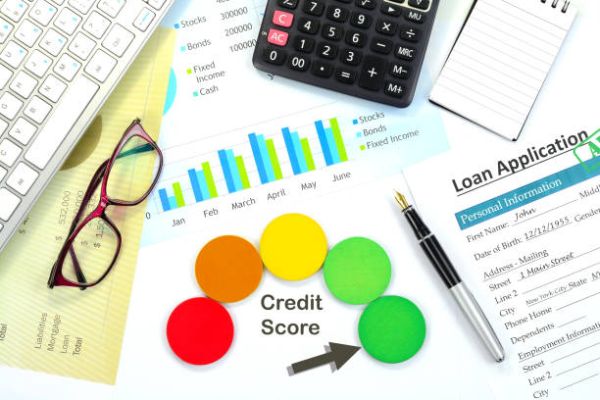Credit evaluation tools serve distinct purposes across business and personal finance sectors. Companies verify partner reliability by conducting thorough assessments, while individuals access credit building resources. Both these approaches reduce financial risks and improve decision-making
Financial institutions and individual consumers face unique challenges when evaluating creditworthiness and managing financial relationships. Credit assessment tools have evolved to address these needs, creating pathways for business and personal financial security. Understanding these approaches helps stakeholders make informed decisions that protect their interests and foster sustainable financial growth.
Modern company credit check systems provide businesses with detailed insights into potential partners, vendors, and clients before establishing financial relationships. These comprehensive evaluations examine payment histories, outstanding debts, legal actions, and operational stability to reveal potential red flags. Smart businesses recognize that thorough due diligence prevents costly mistakes and protects their cash flow from unreliable partners.
Consumer credit solutions empower individuals to understand, monitor, and improve their credit profiles through accessible digital platforms and educational resources. These tools offer real-time credit monitoring, personalized improvement recommendations, and fraud protection services to help people build stronger financial foundations. Personal credit management has become essential for securing favorable loan terms, rental agreements, and employment opportunities.
Understanding Business Credit Assessment Tools
- Risk Mitigation Strategies: Business credit evaluations serve as protective barriers against financial loss from unreliable business relationships. Companies that skip proper credit checks often face payment delays, bad debts, and cash flow disruptions that can threaten operational stability. Professional credit assessment tools analyze multiple data sources to provide comprehensive risk profiles.
- Data Analysis Components: Credit reporting systems examine payment patterns, financial statements, legal records, and industry benchmarks to generate accurate risk assessments. These platforms aggregate information from various sources, including trade creditors, banks, and public records, to create a detailed business profile. Advanced algorithms identify patterns that human analysts might miss during a manual review.
- Decision-Making Support: Credit reports provide actionable intelligence that supports strategic business decisions beyond simple approval or denial determinations. Companies use these insights to set appropriate credit limits, establish payment terms, and structure contracts that minimize exposure. Risk-based pricing models help businesses balance opportunity with protection.
Personal Credit Management Solutions
- Credit Building Fundamentals: Consumer credit platforms offer educational resources and practical tools to help individuals understand credit scoring mechanisms and improvement strategies. These services demystify credit reports by explaining how different factors impact scores and providing step-by-step guidance for positive changes. People learn to view credit management as an ongoing process rather than a one-time event.
- Monitoring and Protection Services: Real-time credit monitoring alerts users to changes in their credit profiles, enabling quick responses to potential fraud or errors. These services track credit inquiries, account openings, balance changes, and payment history updates across all three major credit bureaus. Early detection prevents minor issues from becoming major financial problems.
- Improvement Action Plans: Personalized credit improvement strategies address weaknesses in credit profiles through targeted recommendations and progress tracking. These tools identify which actions will have the greatest positive impact on credit scores within realistic timeframes. Users receive guidance on debt management, payment optimization, and credit utilization strategies.
Key Differences and Applications
- Target Audiences and Purposes: Business credit checks focus on commercial risk assessment for B2B relationships, contract negotiations, and partnership evaluations. Consumer credit solutions target individuals seeking personal financial improvement, loan preparation, and identity protection services. Each system addresses distinct regulatory requirements and industry standards.
- Data Sources and Methodologies: Commercial credit reports draw from business registries, trade creditors, financial institutions, and legal databases to assess corporate financial health. Consumer reports rely on personal banking relationships, credit card activity, loan performance, and public records to evaluate individual creditworthiness. Risk models vary significantly between business and personal applications.
Implementation Best Practices
- Strategic Integration Approaches: Organizations benefit from incorporating credit assessment into standard operating procedures rather than treating it as an optional step. Regular monitoring schedules help identify changes in partner financial stability before problems affect business relationships. Automated systems can trigger alerts when credit conditions deteriorate beyond acceptable thresholds.
- Technology Platform Selection: Modern credit solutions offer various features and integration capabilities that organizations should evaluate based on their needs and technical infrastructure. Key considerations include:
- Data accuracy and real-time updates from multiple sources
- User interface design and ease of navigation for team members
- Integration capabilities with existing business management systems
- Compliance features for industry regulations and privacy requirements
- Customer support quality and response times for technical issues
- Training and Adoption Strategies: Successful credit management programs require proper training for staff members who will interpret and act on credit information. Regular updates ensure teams understand new features, regulatory changes, and best practices for risk assessment. Clear policies help maintain consistency across different departments and decision makers.
Credit assessment tools have become indispensable for both business and personal financial management in today’s complex economic environment. Companies that neglect proper credit checks expose themselves to unnecessary risks that can damage profitability and operational stability, and individuals who ignore their credit profiles miss opportunities for better rates and terms on major purchases.
Take action today by implementing appropriate credit monitoring solutions that match your needs and financial goals.
Featured Image Source: https://media.gettyimages.com/id/1266971215/photo/credit-score.jpg?s=612×612&w=0&k=20&c=eagScOvHakpTnlyuCQHoqLD1L1bUshYG9eSwlYwzSGk=


